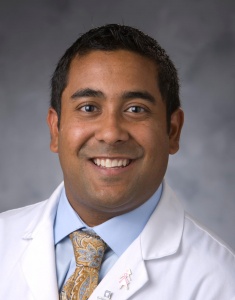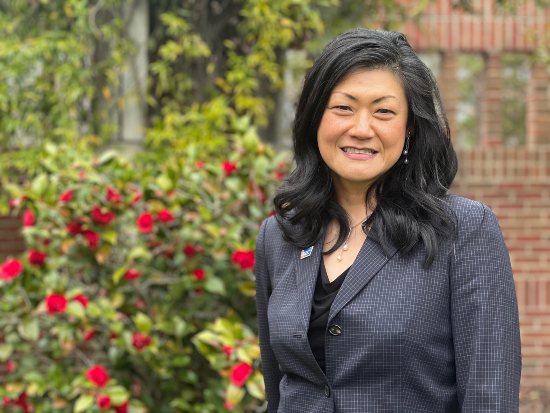
Impact Investors Eye Triangle’s Life Sciences Scene as Fertile Ground for Talent, Solutions
(Editor’s note: This is the final installment of a three-part series of articles on LaunchBio's Invest in Cures forum. The first is here and the second one is here.)

Impact investing, an investment strategy that aims to generate specific beneficial social or environmental effects in addition to financial gains, is on the rise.
That came into focus late last month during LaunchBio's Invest in Cures forum at the North Carolina Biotechnology Center. Many of the nation’s top healthcare foundations are ramping up their ground game in the Triangle, tapping everything from talent to solutions, to tackle growing health disparities across the country.
Case in point: The American Cancer Society (ACS), the largest non-governmental funder of cancer research in the U.S., spending around $130 million annually to find cures. Through its venture capital arm, BridgeEdge, it recently named the Duke Cancer Institute’s Arif Kamal, M.D., as its first chief patient officer to lead its patient support vision and strategic plans.

Atlanta-based BrightEdge said Kamal, a nationally recognized expert in oncology quality assessment and palliative care, will lead its “first single, coordinated unit to accelerate progress against cancer through its patient-facing activities.” Kamal, whose Duke lab received a $24,000 Flash grant from the North Carolina Biotechnology Center in 2019, will center his ACS work from his home in Chapel Hill and maintains a small palliative care clinical practice at Duke Cancer Center.
"Dr. Kamal also has an entrepreneurial streak, with both a medical and a business background,” said Karen E. Knudsen, MBA, Ph.D., chief executive officer of the ACS and its Cancer Action Network. “This unique combination makes him a perfect fit for leading our patient support program."
It’s yet another signal that the VC world is waking up to impact investing, and what North Carolina has to offer. With the Triangle’s ever-growing life science scene, industry insiders say the region is primed to play a pivotal role in this new capital environment.
BrightEdge’s managing director Alice Pomponio, who recently appeared as part of a “who’s who” speaker lineup at LaunchBio’s Invest in Cures forum at the North Carolina Biotechnology Center, said ACS has teams in 5,000 communities across the country, including North Carolina.
It's now working with the state’s leadership team to identify areas of highest impact, she said, “a process that often unearths potential investment opportunities.” Topping its priorities: addressing the “significant disparities” in cancer incidence and mortality rates that still exist across diverse populations.

Launched in 2018 with an initial $25 million investment from ACS, BrightEdge invests in for-profit, early-stage companies developing cutting-edge cancer-focused therapeutics, diagnostics, devices, and technologies.
To date, the donor-funded impact fund has about $70 million and has made 17 investments, including immunotherapy drug developer Checkmate Pharmaceuticals, early-detection biotech Freenome and patient financial navigation software firm TailorMed.
However, the fund has yet to make an investment in the Old North State. While ACS invests heavily in the state through grants -- including 27 awards totaling more than $11 million to date – North Carolina is still lagging on the impact side.
Pomponio said that could soon change with Kamal’s appointment.
His scope encompasses cancer control, patient navigation, educational programs, patient lodging solutions, transportation services and all aspects of ACS functions that touch patients across 5,000 communities.
“The deal-vetting process is ongoing,” she said. “We’re exploring potential investments across the country, including North Carolina, which is obviously a hotbed of technology and innovation.”
Redefining success
Nonprofit disease foundations for years have provided grants for basic science. But in recent years, there’s been a growing shift to further their mission by establishing venture arms and investing directly in startups to spur commercialization.
Even amid the COVID-19 pandemic, impact investments reached $2.3 trillion in 2020, according to the most recent report from the International Finance Group.
Alongside ACS are local groups like the Raleigh-based Foundation Fighting Blindness. It recently launched its own Retinal Degeneration Fund to fund cures for ultra-rare blinding conditions. Many say this uptake is driven, in large part, by the desire to tackle the stark disparities in health coverage, chronic health conditions, and mortality across racial and ethnic groups in the United States.
According to the Centers for Disease Control and Prevention (CDC), 60% of premature deaths are associated with social, environmental, and behavioral circumstances. Only 10% are the result of inadequate clinical care, and 20 to 30% stem from genetics.
Funding research such as cancer therapeutics, however, faces special risks. Among them: the potential for regulatory issues or the uncertainty of performance in clinical trials.
Still, that shouldn’t stop some VCs from pursuing them, said John Stanford, executive director of Incubate, a coalition of venture capital organizations that represent the patient, investment, and corporate communities.
“We need to be willing to take more risk in certain areas that will disproportionately benefit those forgotten communities,” said Stanford, who describes himself as the “voice” of the early-stage life science ecosystem in Washington and appeared alongside Pomponio at the same forum. “That’s something we're all looking at.”
Addressing the 100-strong crowd gathered inside NCBiotech’s main auditorium, Standford said nine out of 10 investments fail, and it’s often hard for VCs to take those risks in such a capital-constrained environment: “To break even, that 10th investment has to yield a 1,000% return.”
But he remained optimistic.
“We're at a point with a healthy amount of capital,” he said. “Hopefully you're going to see VCs tackling equity and redefining what success looks like.”
Expanding clinical trials
The American Medical Association said it’s doing just that -- and has already notched one investment in the Triangle to prove it.
Through its Health 2047 fund that focuses on early-stage startups, the Silicon Valley-based innovation firm recently spun out SiteBridge Research, an integrated research organization (IRO) headquartered in Chapel Hill. The startup is “democratizing” clinical trials by reducing barriers for sites and participants. This includes enabling trials to occur at “point-of-care versus traditional large academic institutions.”
“During one of our conversations with Duke Clinical Research Institute, we were asked to take a look at their portfolio,” said Lawrence K. Cohen, CEO of Health2047, who declined to disclose the terms of the deal. “It jumped out to us as an interesting opportunity to help shape and commercialize.”
Studies suggest that there is an underrepresentation of marginalized communities within clinical trials, especially individuals from Black and Latinx communities.
Cohen said SiteBridge is building a “national network of small and community practices” to deliver research in communities that are “hardest to reach.”
“The pharmaceutical industry has faced challenges in navigating the fragmented small and community practice space,” he said. “Small and community practice physicians need a path to engage in trials. This is why Health2047 launched SiteBridge Research.”
Kirsten Axelsen, senior policy advisor at DLA Piper, said improving equity in clinical trials must be a priority at the Invest in Cures forum.
“There were about 50 drugs approved last year, and five or six had representation that was equal for Blacks and Hispanics to their portion of the U.S. So, it’s still dismal,” she said. “Obviously, it's a huge opportunity lost.”
